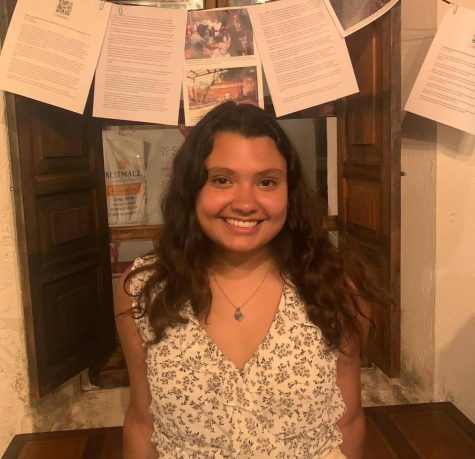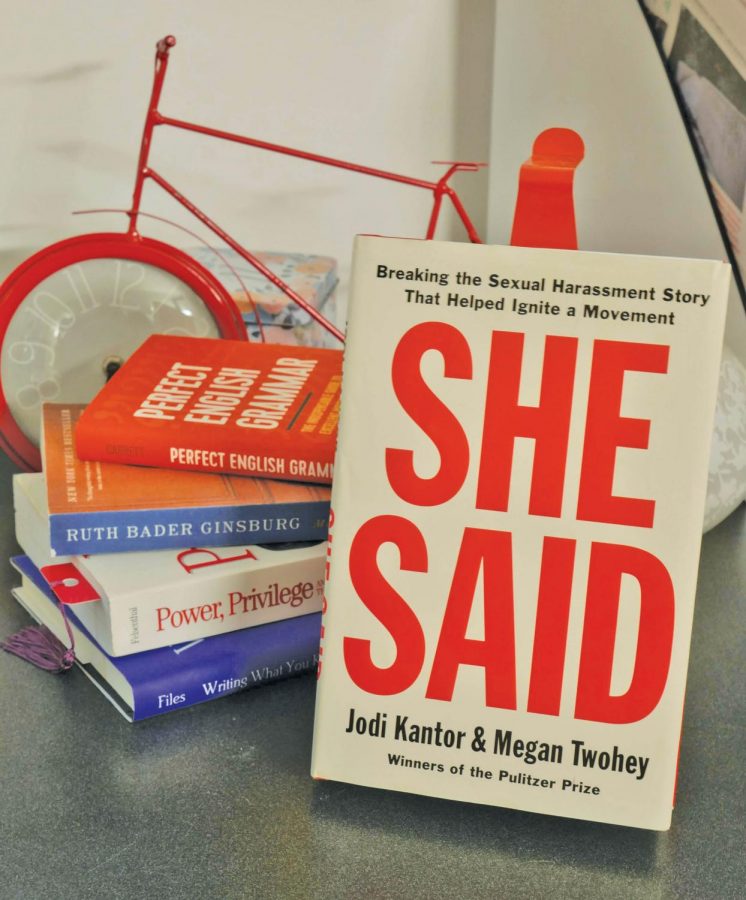#MeToo book unites survivors, sets standard for in-depth reporting
‘She Said’ was released Sept. 10 to rave reviews. Both Kantor and Twohey are New York Times reporters.
Women who batted Harvey Weinstein are finally being brought some justice, helped by The New York Times reporters, Jodi Kantor and Megan Twohey. In their newly released book, “She Said,” the two authors cover the case that sparked the #MeToo movement, where women and men began to come forward about their experiences with sexual assault, abuse and harassment. The movement quickly turned into a huge controversy, but seeking justice remained a top priority for the two.
As a survivor, although I found this book triggering, it also brought forth some peace of mind. Understanding that multiple people go through the same frustrating, emotionally draining, almost hopeless process really brought meaning to when others say “you are not alone”. From police reports, to transcribed emails, to call records, Kantor and Twohey retrieved all sources to make sure the truth was brought into the spotlight.
The two, not only through this book, but through their devout research on this topic, are now some of the biggest advocates the community needed. They did their jobs and reported the cold, hard truth. That is what #MeToo is about. They brought light to the fact that women and men do not report their sexual assault to ruin others’ lives, or to cast a dark shadow upon them.
The #MeToo Movement helped survivors be more comfortable and confident about coming out about their trauma. It is not easy to report. It is not for attention; it is for awareness and protection. It is done in hopes of stopping sexual assault in its tracks, or at least decreasing the amount of people hurt. It resurfaces the trauma and is extremely painful for many to share. This is why it takes survivors weeks, months, years or even tens of years to share.
Kantor and Twohey brought evidence to the table showing audiences the pain powerful men like Harvey Weinstein and Brett Kavanaugh brought into the workplace, homes and schools. Their inclusion and rather daring decision to include the call and email records is admirable and a big statement for the community of survivors and supporters.
The movement first went on trial when Christine Blasey Ford appeared in court in September of 2018, accusing Associate Justice of the Supreme Court, Brett Kavanaugh of sexually assaulting her back in high school. Many believed Blasey came forward for attention, but the two reporters searched for the truth and supported her, as they did with many others who came forth. Soon, one after another, people of power were being tried as the movement ignited more and more confidence in survivors.
The time, effort, multiple road trips to interview survivors and bold moves calling the perpetrators out proved the two credible- this is investigative journalism at its finest, to say the least.

Nina Martinez is a senior at St. Edward’s University, earning her Bachelor’s in Writing and Rhetoric. Martinez has reported and edited for Hilltop...







